Several years ago, eCoexist started to distribute packets of seeds with our Ganesh idols. We invited devotees who purchased our eco Ganesh idols, to include these seeds in their worship as 'prasad' - a gift from Lord Ganesha and to plant them after the ten days of festival were complete. Over the years this tradition has touched the heart of many of our clients and we are now receiving requests for seeds along with the orders that people place.
We are honoured and happy to share that this year we will start work again with the Vanastree Seed Collective based in Sirsi, Karnataka.
|
|
|
Vanastree - means 'women of the forest'. This is a women-farmers’ collective based in the Western Ghats of tropical South India dedicated to promoting forest garden biodiversity and small scale food systems through the conservation of traditional seeds and tubers. The agrarian communities in Sirsi are part of an age-old way of life where the wilderness, spice orchards, paddies and homesteads are closely intertwined. The role of women farmers and gardeners is seen as integral to the social, cultural and ecological fabric of the unique Malnad region where the collective is located.
|
|
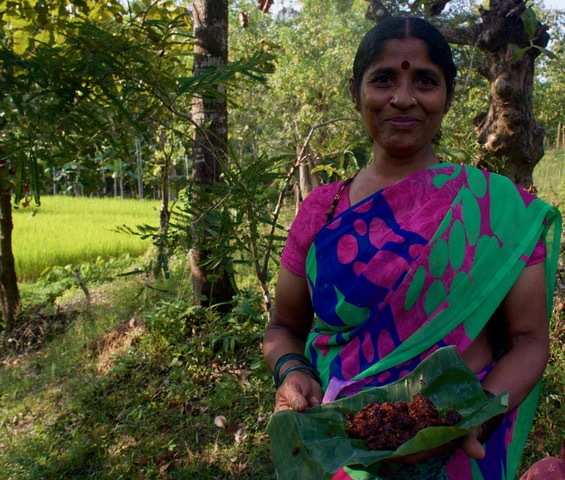
|
|
Photo: Vanastree
|
|
|
Farmers and gardeners of the Vanastree collective save seeds of traditional vegetables and flowers. These seeds are organic, open pollinated, and available for planting in food gardens (including urban terraces) all over the Indian sub-continent. Seeds are exchanged and gifted as a tradition in the Malnad which we have encouraged and endorsed as a priceless community activity.
|
|
Seeds are the essence of life. Humans have evolved alongside the seeds that they chose and planted. Saving of seeds of age-old varieties of crops has ensured planting material for cycle after cycle of food crops. If we don’t save seeds to plant, then where will our food come from? The art of seed saving and exchange ensures that we also have autonomy over the kind of crops we grow and what food we eat for generations to come. Seed Swaraj is the new swaraj!
The reason we talk about Beej Swaraj or Seed Swaraj is because seeds are precious and without them life just cannot move forward. Several MNCs (Multi National Companies) have cashed in on this, and produce hybrid seeds that they sell at very high prices in the market. Modern hybridisation is the purposeful crossing of plant varieties with desirable qualities evidently in order to “improve” them. It is done by selection of certain traits over several generations of plants. It has become a ploy used by seed companies to ensure proprietary and breeding rights over the varieties developed by them, thus monopolising the market. The process renders future generations of those seeds almost sterile and unusable, since the undesirable variations show up. Modern hybrid seeds cannot be saved and re-sown. Farmers and gardeners have to buy fresh seeds from the seed companies year after year, thereby incurring high costs and becoming enslaved. Monsanto, Syngenta and others are companies that have built up a notorious reputation for their role in the seed business and biopiracy.
Open pollinated (OP) seeds on the other hand are traditionally bred seeds, which have been developed by farmers in an open, natural environment. They have been preserved for millennia, and can be saved, sown and reproduced by anyone, thus allowing farmers and gardeners independence from seed companies. It also means that many rare and wonderful varieties get a chance to be part of the vast genetic pool of plants that we have around us.
|
|
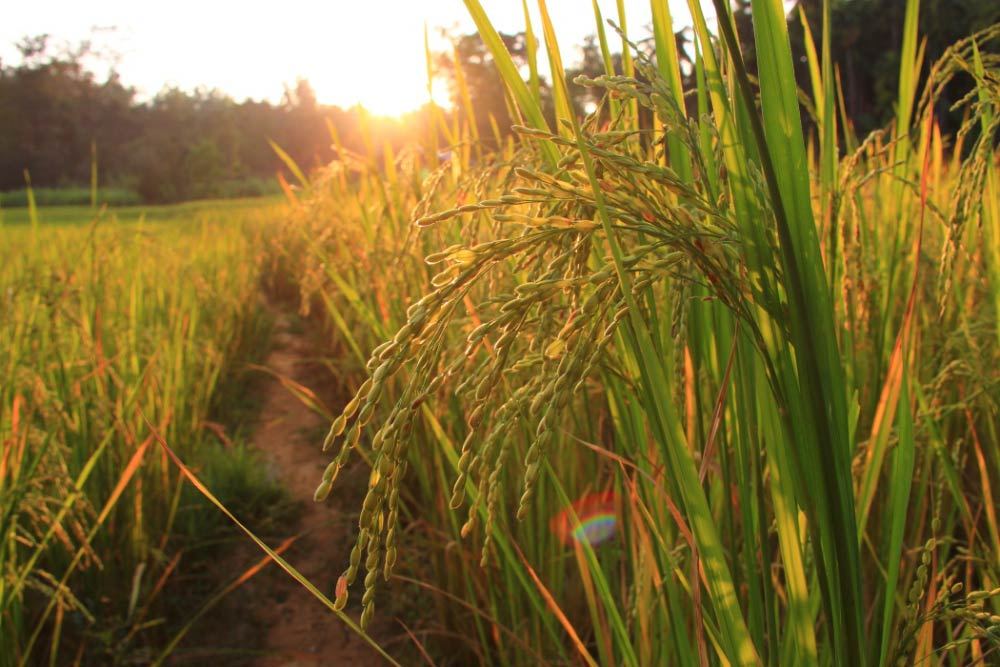
|
|
Photo: Vanastree
|
|
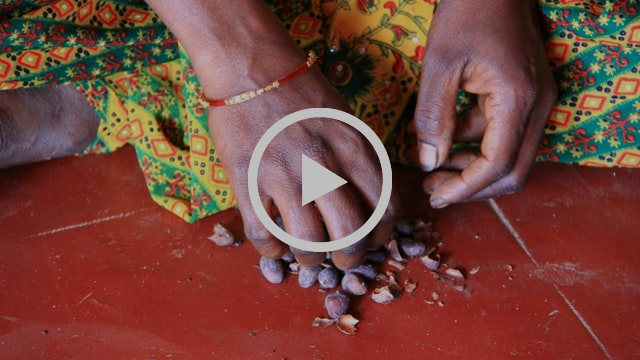
|
|
Watch a documentary on the work being done by Vanastree with the women of Sirsi.
|
|
|
Once these precious seeds are recieved in Pune, they are sent to Ahwalwadi, where eCoexist is working with a similar womens group. The seeds are bundled into small potlis and this work also helps the women earn. During the festival of Ganesh Chaturthi each Ganesh idols from eCoexist goes out with one such seed bundle.
|
|
For this year, we are distributing seeds of two flowers - Marigold ( Zendu) and Butterfly Pea ( Gokarn).
MARIGOLD ( ZENDU)
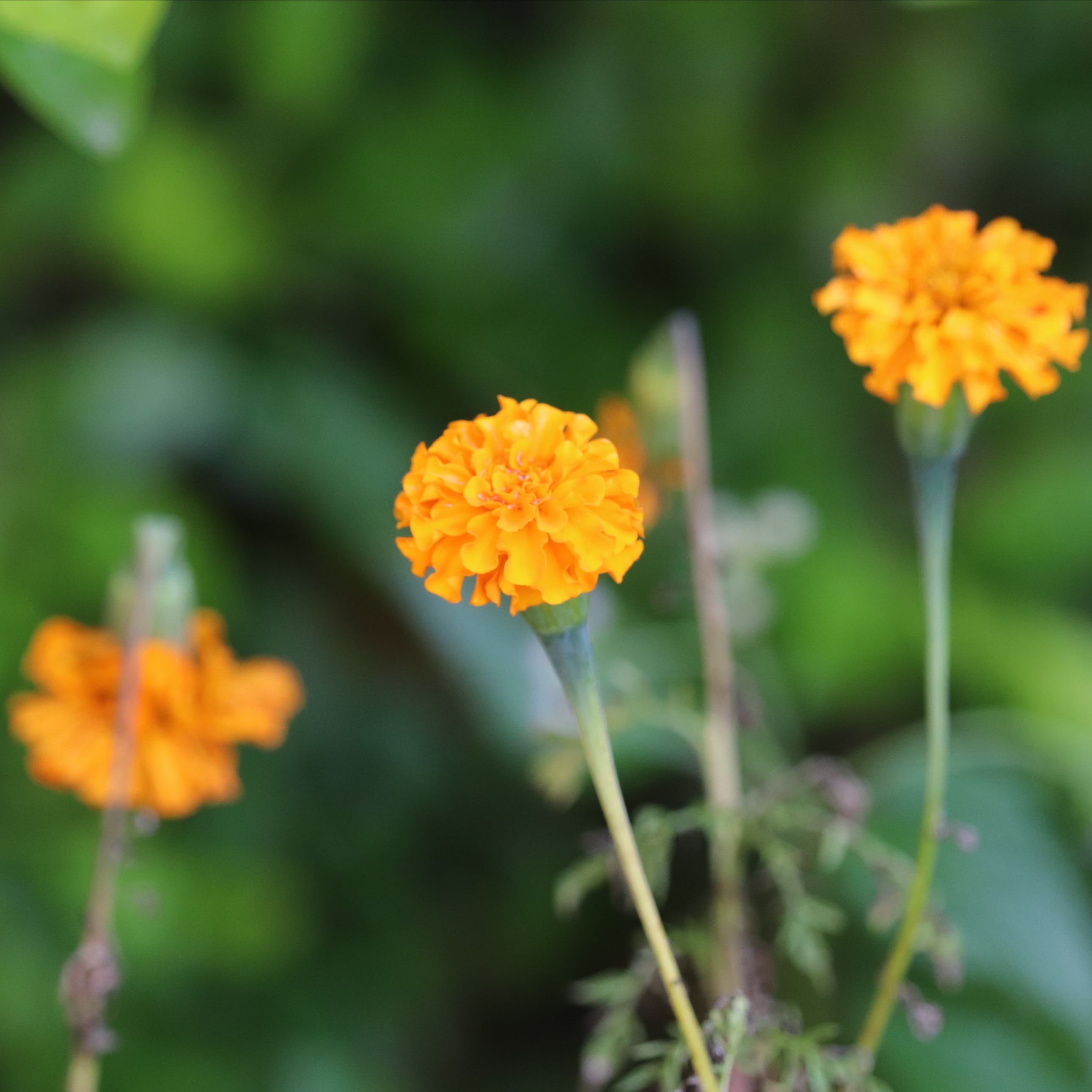
|
|
Marigold has been traditionally used in religious and social ceremonies. The plant is a good companion for vegetable crops since it repels insect pests. They grow easily, bloom reliably, and have few insect and disease problems. Marigolds are highly useful for medicinal purposes such as headaches, toothache, swelling, and strengthening the heart. They have also been used in cooking as well.Marigold has been highly valued by herbal healers of centuries. In most herbal reference works it is called calendula, its Latin name, so the two names are interchangeable.
|
|
|
Only the flower heads of marigolds are used medicinally. They are well known for their wound healing and antiseptic properties, but modern herbalists have found a wide variety of uses for them, including: an alternative analgesic, anti-inflammatory, antispasmodic, astringent, bactericide, carminative, depurative, diuretic, emmenagogue, stomachic, styptic, and tonic. The petals of the marigold have been made into an infusion that is useful as an eyewash. They are also good as a natural fabric dye and for food coloring.
|
|
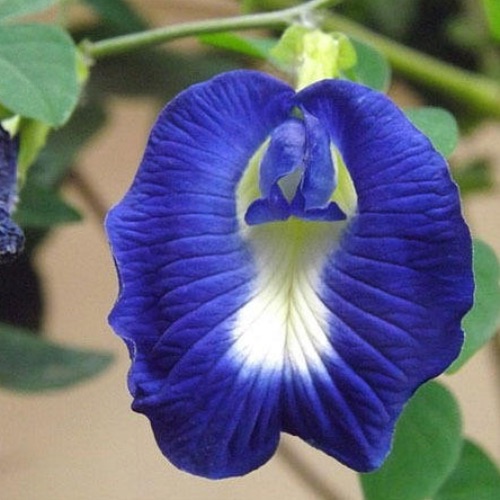
BUTTERFLY PEA ( GOKARN )
|
Butterfly pea is a lovely climber. Flowers are used for religious ceremonies and prayers and also made a good juice. The plant has medicinal properties and flowers are also used to make a juice and a vegetable colour for dyeing.
In traditional Ayurvedic medicine, it is ascribed various qualities including memory enhancing, nootropic, antistress, anxiolytic, antidepressant, anticonvulsant, tranquilizing, and sedative properties.In traditional Chinese medicine, the plant has been ascribed properties affecting female libido due to its similar appearance to the female reproductive organ.
|
|
While our religious beliefs and cultural traditions are important and must be continued, we also need to bring back our awareness of the importance of Nature in our lives. Especially for urban residents, the disconnect with Nature is creating both mental and physical problems as well as damaging our natural environment.
Vanastree has come up with a beautiful handbook to help us grow our own gardens - even if we just have a terrace or a balcony in our apartment. It is a graphic guide to gardening. It is now in its third edition, having been used and enjoyed by scores of gardeners all over the Indian sub-continent.The beautifully illustrated book gives information on how you can grow your own foods and herbs at home. This is a great activity to do with your children also.
The book costs Rs 200/- and will soon be available in Pune with eCoexist along with the seeds of Vanastree.
|
|
|
The organic, open pollinated marigold and butterfly pea seeds that will go out with the Ganesh idols this year are small but potent ambassadors of this message of seed and food sovereignty. Each person planting them will be taking forward the belief and effort that seeds are our heritage and the farmers who have saved them are precious. Lord Ganesh will surely remove any obstacles in the way of this noble activity!
|
|
|
|